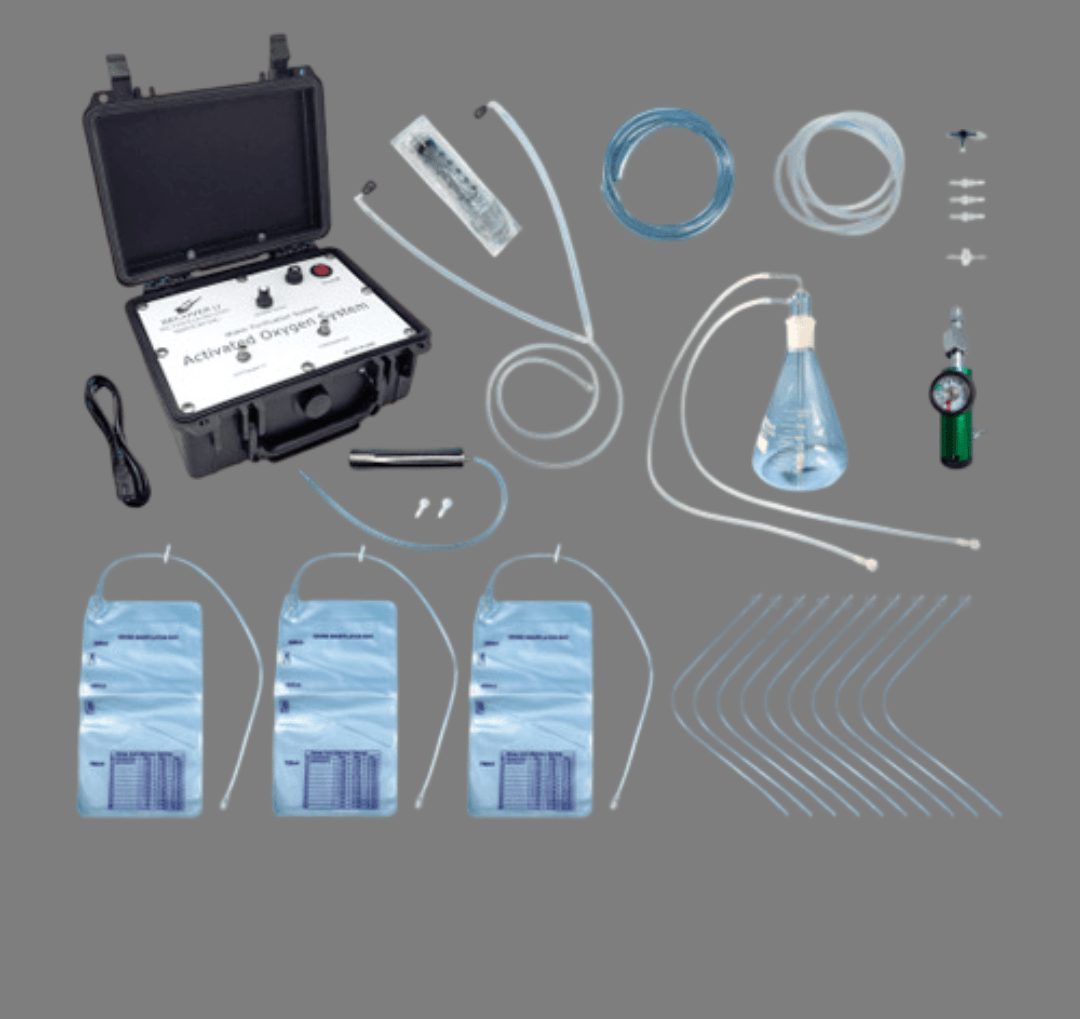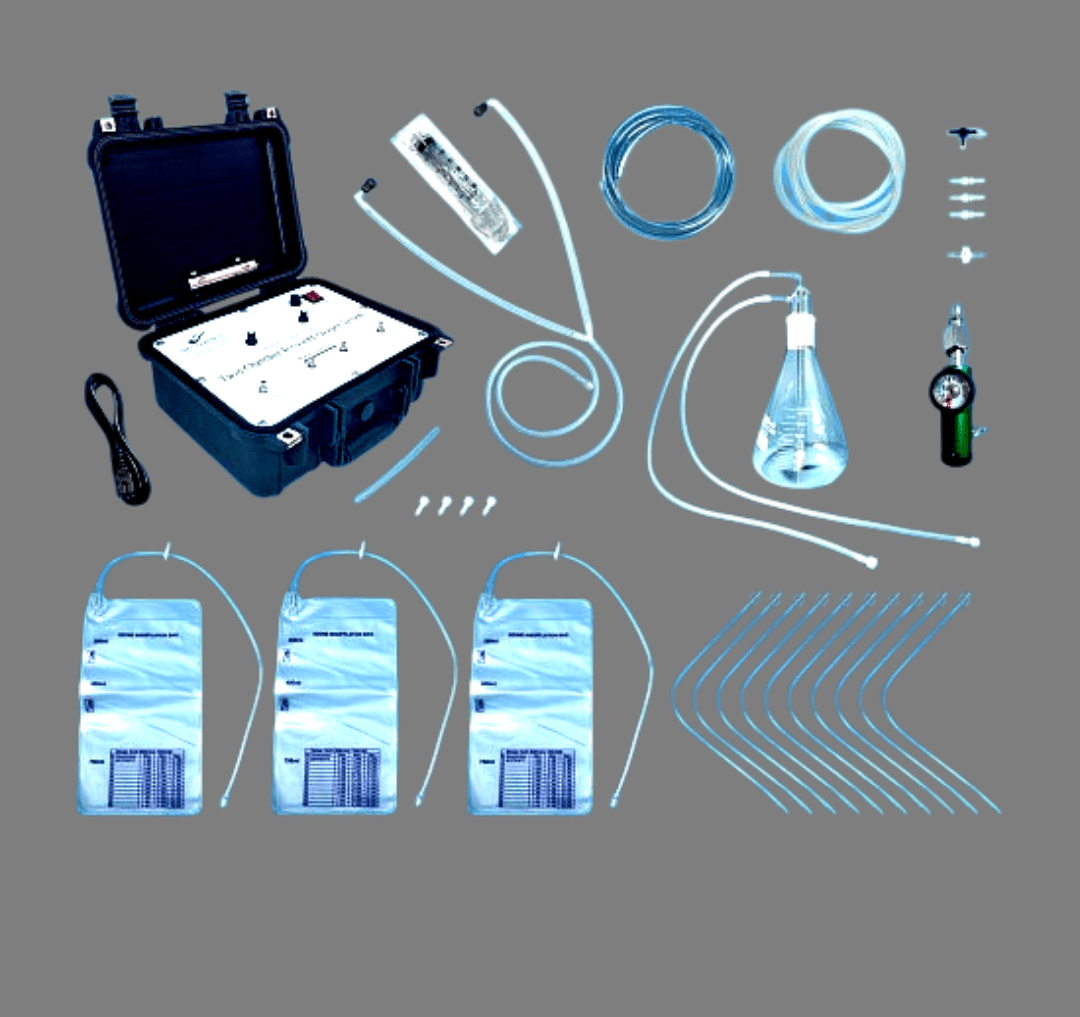Ozone and You — What Can It Do for Your Health?
Discover how ozone therapy supports detox, energy, immunity & cellular repair.
Key Benefits of Ozone Therapy Kits
- Boosts energy at the cellular level
- Supports immune resilience
- Combats infections
- No bacteria can build resistance
- Gentle, safe, at-home applications
-
Ozone Gas 101
is a highly reactive form of oxygen. In carefully controlled, low amounts it forms short-lived compounds called ozonides that signal the body to support energy, circulation, immune balance, and antioxidant defenses.
Want to learn more about how ozone therapy works in the body? on the button below to read Ozone Gas 101 or explore our full Ozone Therapy Kits.
What happens in the body?
Ozone is O3—three oxygen atoms. It’s unstable (by design). When it contacts tissues and blood, the third atom reacts quickly and creates ozonides (short-chain peroxides). These:
- Persist for hours to days and act as gentle messengers.
- Help the body coordinate healing, immune response, circulation, and antioxidant activity.
Key benefits discussed in ozone therapy
- Cellular energy: Ozonides reach the mitochondria (your ATP “engines”). Result: better energy for repair and detox.
- Immune modulation: Encourages white blood cells to release cytokines that help manage inflammation and fight microbes.
- Circulation: Promotes vasodilation (wider vessels) for improved blood flow and oxygen delivery.
- Antioxidant balance: Repeated sessions nudge the body to build its own antioxidant defenses.
Why people choose ozone therapy
- Gentle and non-invasive.
- Useful for long-term wellness maintenance.
- Customizable for goals like detox, immune support, or recovery.
- Supports metabolism and mitochondrial function.
- Enhances oxygen delivery and energy production.
- Helps immune activity without acting like an antibiotic (so typical drug-resistance mechanisms don’t apply in the same way).
- Supports detox by stimulating antioxidant pathways.
- Encourages whole-body wellness and rejuvenation.
Common at-home applications (low concentrations)
Always seek guidance from a qualified ozone practitioner before starting home use.
- Rectal and vaginal insufflation.
- Ear insufflation.
- Drinking ozonated water.
- Breathing only via oil bubbler: oxygen/ozone gas is bubbled through olive oil and then through a gas destructor; do not inhale ozone gas directly.
- Topical ozonated oils.
- Steam sauna with ozone.
Clinic-only procedures
- Ozone IV (intravenous ozone)
- Prolozone
These must be performed by qualified practitioners only.
Is ozone natural?
Yes. Your white blood cells generate small amounts of ozone as part of the immune response. In nature, ozone also contributes to that “fresh air after a thunderstorm” smell—it’s often called nature’s cleaner.
Why home use can be safe (when done correctly)
- Uses very low, controlled concentrations.
- Relies on purpose-built medical/therapeutic devices and gas destructors.
- Follows precise protocols for time, flow, and concentration.
Important: This information is educational and not medical advice. Ozone is not a drug and isn’t a substitute for professional care. Consult a qualified practitioner—especially if you are pregnant, have a medical condition, or take prescription medications. Never inhale ozone gas directly.
Global Ozone Network – Ozone Around the World
-
AAOT – American Academy of Ozone Therapy
-
ISCO3 – International Scientific Committee of Ozone Therapy
Custodians of the Madrid Declaration. -
AEPROMO – Spanish Association of Medical Professionals in Ozone Therapy
-
Ozone Research Center (Cuba)
Founded in 1992, it helped establish clinical protocols now used globally. -
Madrid Declaration on Ozone Therapy
A global consensus document, translated into 10+ languages and updated every 5 years. -
Key Milestones
-
1840s – German scientist Christian Friedrich Schönbein discovers ozone (O₃) as a unique form of oxygen.
-
1873 – Researcher Fox documents ozone’s ability to eliminate microorganisms.
-
1881 – Dr. Kellogg mentions ozone in treating diphtheria.
-
1885 – The Florida Medical Association publishes the first medical ozone textbook (Dr. Kenworth).
-
1893 – First municipal ozone water treatment plant opens in Ousbaden, Netherlands.
-
1896 – Nikola Tesla patents the first medical ozone generator.
-
1911 – Dr. Noble Eberhart treats diseases with ozone at Loyola University, Chicago.
-
1915 – Dr. Wolf uses ozone in German WWI field hospitals for gangrene and wounds.
-
1932 – Dr. Fish introduces ozone into dentistry and patents the first dental ozone device.
-
1940s – FDA suppression in the U.S. shifts medicine toward antibiotics.
-
1970s – Russian doctors treat burns, asthma, and heart conditions with ozone.
-
1980s – Cuba adopts ozone therapy; the Ozone Research Center is founded in 1992.
-
2010 – Release of the Madrid Declaration on Ozone Therapy — the first global consensus document.
-
2020 – The 3rd edition of the Madrid Declaration expands to human, veterinary, and dental medicine.
-
Find the History of ozone article-link BELOW


